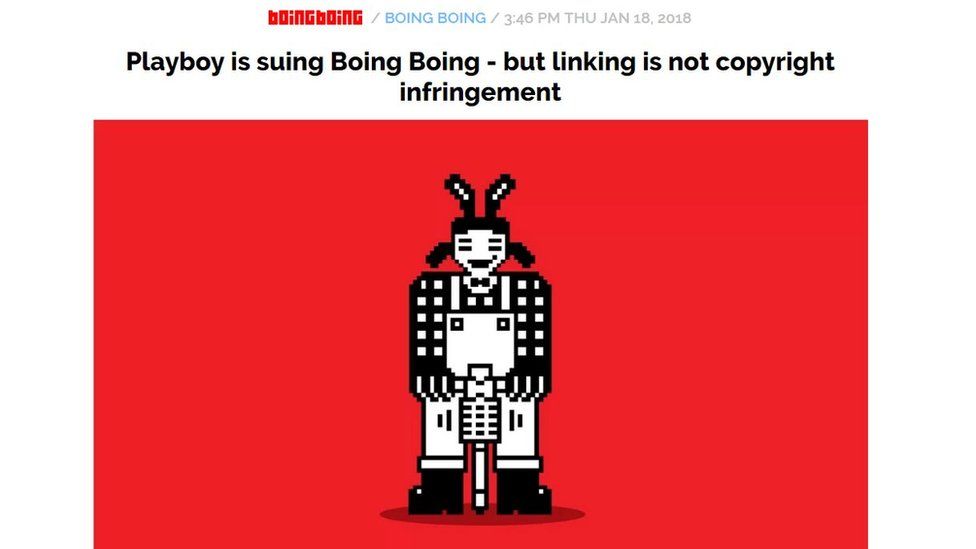Boing Boing blog sued over Playboy centrefolds link
- Published

Popular blog Boing Boing is being sued by Playboy magazine over a link it shared to an archive of centrefolds.
The archive of almost 500 "Playmates" was created by an unknown person from scans of the centrefolds and uploaded to image-sharing site Imgur.
Playboy's lawyers said Boing Boing had "materially contributed" to copyright infringement of its images.
Boing Boing said the lawsuit was "baseless" because it was not the gallery's creator.
It has asked a US court to dismiss what it called the "mystifying" legal action.
Material benefit
Playboy sued late last year soon after the offbeat news blog linked to the Imgur gallery.
At the time, Boing Boing editor Xeni Jardin said the images were "amazing" for the insight they gave into "how our standards of hotness, and the art of commercial erotic photography, have changed over time".
The blog also linked to a separate YouTube clip that featured all the centrefold shots.
The Imgur gallery and YouTube video have both now been removed.
Legal papers were filed by Playboy's lawyers following Boing Boing's post, claiming that by featuring it the site encouraged people to visit the copyrighted material.
It said this amplified the effect of the copyright infringement it had suffered. In addition, it said, because Boing Boing runs ads on its site, it had benefited commercially from sharing the link.
Playboy is seeking damages of $150,000 (£108,000) per image.
'Fair use' doctrine
Boing Boing, via its holding company Happy Mutants, has issued a motion to dismiss the case, saying Playboy had not established grounds for its accusation of "direct or contributory copyright infringement".
It added: "Rather than pursuing the individual who created the allegedly infringing archive, Playboy is pursuing a news site for pointing out the archive's value as a historical document."
The Electronic Frontier Foundation, which campaigns on digital rights issues, joined Boing Boing's call for the case to be dismissed.
"Courts have long recognised that simply linking to content on the web isn't unlawful," it said in a statement.
Boing Boing's report and comment was protected by the "fair use" doctrine, added the EFF.
"Journalists, scientists, researchers, and everyday people on the web have the right to link to material, even copyrighted material, without having to worry about getting sued," it said.
- Published10 January 2018
- Published28 September 2017
- Published17 January 2018
- Published14 June 2017